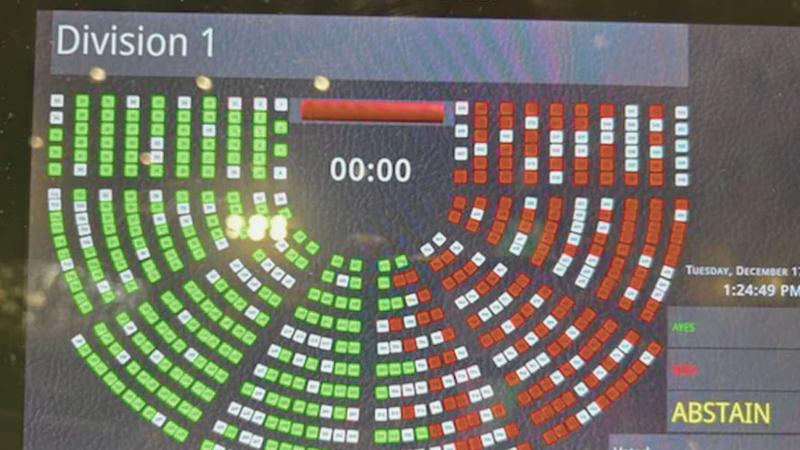
- devara
- 17 Dec 2024 09:18 AM
- BJP, One Nation One Election, Lok Sabha, Congress
On Tuesday, the Lok Sabha voted to introduce two bills aimed at amending the Constitution to allow simultaneous federal and state elections under the BJP’s One Nation One Election initiative. The bills passed with a simple majority—269 votes in favor and 198 against—but the opposition pointed out that the government failed to secure the necessary two-thirds majority, required to amend the Constitution. Congress MPs, including Manickam Tagore and Shashi Tharoor, emphasized that the bill's failure to gain broad support could hinder its passage in future votes.
Despite this, the government moved forward with the Constitutional Amendment Bill, which aims to synchronize elections for the Lok Sabha and state assemblies. However, opposition parties, including Congress, Trinamool Congress, Samajwadi Party, and others, raised concerns that the bill undermines India’s federal structure. They argue that it could subvert the Constitution's basic principles and increase the risk of authoritarianism, with Mamata Banerjee calling it a direct threat to India’s democracy.
Legal experts have warned that the failure to secure the necessary amendments could lead to legal challenges against the proposal. These challenges would focus on the potential violation of India’s federal structure, which requires separate terms for central and state legislatures. To implement One Nation One Election, several key constitutional articles must be amended and ratified by state governments.
Meanwhile, the BJP has received backing from allies like the Telugu Desam Party and Shiv Sena. BJP leaders, including Law Minister Arjun Ram Meghwal, defended the proposal, stating that it would not damage the Constitution but help streamline the electoral process. The bill is now expected to be sent to a joint committee for further discussion, where the BJP is likely to lead.
The proposal’s future hinges on gaining the necessary political and constitutional support, with many political observers watching closely to see if the government can secure enough votes in future rounds of voting.







































